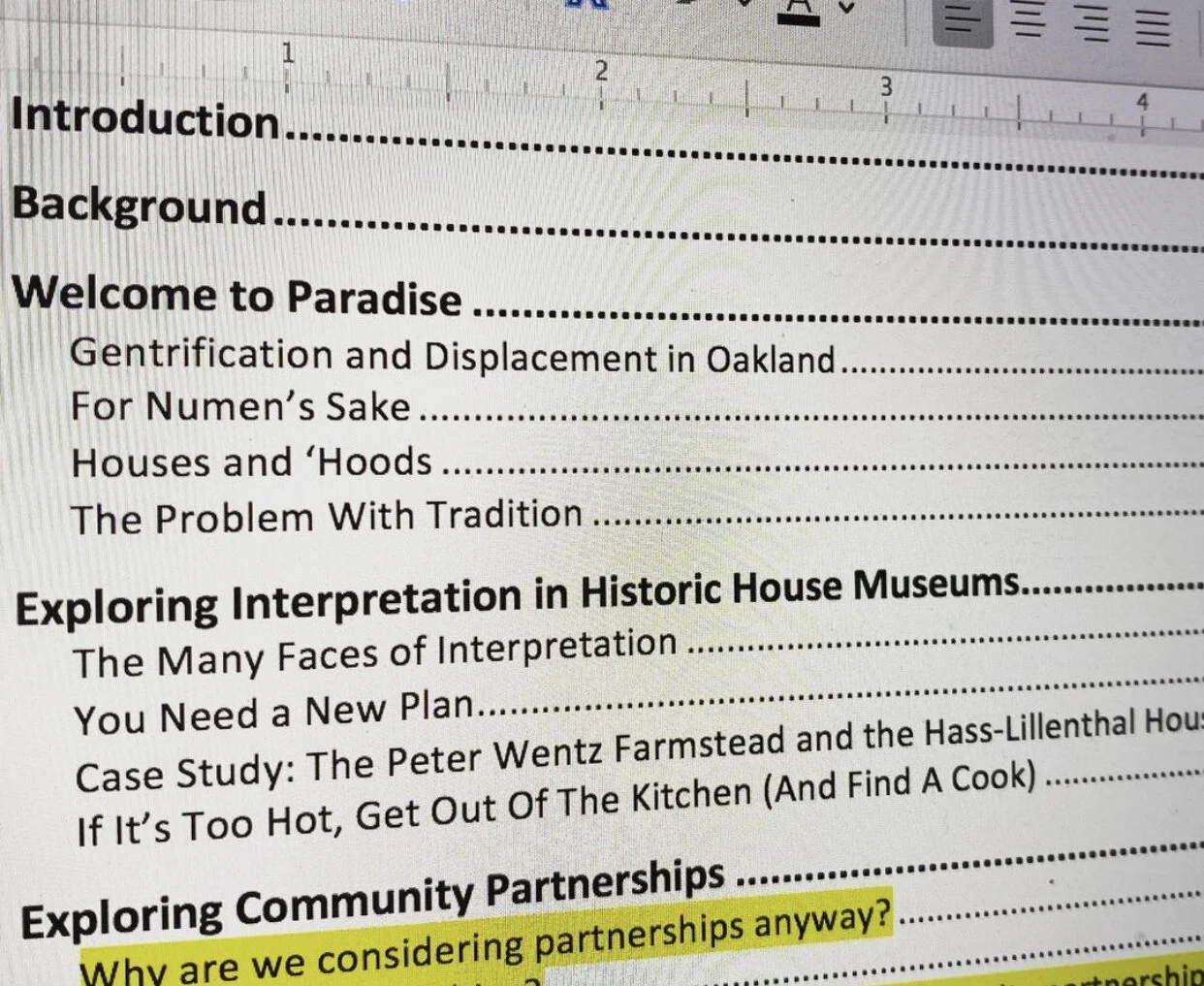My Grad School Magnum Opus
I definitely had to fight to keep some of these section titles. There is space for fun in academia, even at Harvard.
It seems like so long ago now, but I did it, I graduated with my Masters in Museum Studies from Harvard in May of 2020. During the last year of my graduate studies I worked on my Capstone Project, which is a student-driven research project that every student in the department must complete in order to be awarded their degree. Students work closely with a research advisor (in this case our department head), and a faculty reader who provides support and advice throughout the process.
What is it about? It’s about how historic house museums can take bold moves to reimagine their interpretation strategies while engaging in strategic community partnerships that promote growth and create spaces for diverse communities to find meaning and belonging at historic sites. More specifically, it looks at three house museums in Oakland and how the changing dynamics of the city have only heightened a need for community connections to history.
I can tell you that the months spent on this project were among the most intense months I’ve experienced in my life. There were many anxiety-filled restless nights, late nights spent researching and writing, weekend spent away from home so that I could hole up somewhere without any distraction, just to knock out a few pages at a time. I actually did have a page in my research notebook where I kept tallies of how many times I cried during the process (I do not recommend doing this, by the way. It’s sad.). Despite this, the months spent on this project were also some of my best memories of the program. I got to fully throw myself into a topic that I was so passionate about, and I got to work with some historic house museums and community groups in my city for which I care very deeply.
I am going to toot my own horn here for a second. I am proud to say that this paper was awarded the Deans Prize for Outstanding ALM Capstone in the Field of Museum Studies, a prize that is awarded to one student per graduating class. Toot toot! I guess the tears were worth it?
My research advisor(s) told me I should seek avenues for publishing this paper. I don’t think that’s going to happen, and that’s ok. When I wrote the majority of this paper, we were living in an entirely different world, one where we could gather in large groups and all breathe on each other without too much concern. A world where museums in Oakland were open. When I graduated in May of 2020, we were still in the early days of the pandemic, still unsure of if this would be a short term thing or not. I remember asking in March, “should I be thinking about this, should I change anything about my approach at this point?” and I was told, basically, it was what it was for now. I snuck in a quick word about COVID-19 at the very end, but not much else. What’s clear now is that the way we think about how we interact with our communities in our spaces is changing. What it means to be a museum space is changing. What our communities need has changed, and will continue to evolve.
So, no, I will not be submitting this paper for publication because it has quickly become a relic of a past society. Likewise, I tend to support open access to information, and far prefer academic open source journals and research databases. So I have added my paper to Academia.edu, which is an amazing scholarly open source research platform. You can find it here.
I do still think there are some good bits of lessons in there that you might find helpful, especially as we move towards rebuilding our in-person connections again in the future, so please feel free to use it in any way that inspires you. I always welcome comments, and love to hear what others are doing and working on, too!


